
Ski jumping betting has become popular in recent years. While it can’t compete in popularity with basketball, volleyball and football, among other popular sports (check the list of the best sports betting companies), it provides something unique in terms of fresh markets and competitive odds.
Ski jumping is among the most exciting sports to watch and place bets on. Popular during the Winter Olympic Games, Ski jumping requires participants to head down a special slope or ramp and then jump at the end of it. The officials evaluate the jumps based on several factors, including the distance, jumping style and overall performance.
Since jumping styles provide many points, competitors have been evolving in this area since 1924, when it became a popular sport in the Olympics Games. The sport seems to be as solid as pool diving for the inexperienced since the judges make the final decision on the scores of jumpers. Whether you’re new to this sport or you have been following it for a while, and you want to start betting, go through the following sections.
People are asking these questions
⛷️ How ski jumping is scored?
The ski jumping score is determined by a combination of two criteria: distance and style.
- Distance is measured in meters, and the longest jump will earn the most points.
- Style is judged on technique, form, air position, landing position and overall impression by judges. The highest possible score a competitor can receive for style is 20 points.
Combined together, the highest possible score a competitor can receive is 120 points.
⛷️ What is ski jumping in the Olympics?
Ski jumping is a winter sport in which participants ski down a steep, specially prepared track and attempt to jump as far as possible from the end of the track. It is one of the oldest Olympic sports, having been part of the original Winter Olympics in 1924. Ski jumping has evolved over time and now consists of four different events; normal hill, large hill, team and mixed team competitions.
⛷️ What do the lines mean in ski jumping?
In ski jumping, the lines on the hill indicate different levels of difficulty for each jump. The closer to the bottom of the line, the shorter and easier a jump is. As you travel up the line, jumps become longer and more difficult. Knowing which lines to choose can be tricky; if a skier chooses too difficult of a line, it could lead to an unsuccessful jump. However, choosing a line that’s too easy can cause the skier to miss out on points and potentially lose the event. It is important for ski jumpers to be aware of the lines in order to make the best possible jump.
⛷️ What does 1440 mean in ski jumping?
In ski jumping, 1440 is a reference to the “Quadruple Flip” jump. This jump involves four flips in the air and four rotations before landing. It’s an incredibly difficult maneuver to master and requires tremendous skill, strength, and control.
⛷️ What factors should I consider when placing a ski jump bet?
When placing a Ski jumping bet, there are several factors you should consider.
- First, do your research and familiarize yourself with the sport and its rules – this will help you make an informed decision when placing a bet Ski jumping.
- Additionally, it is important to look at the form of each athlete or team that you are considering betting on, as well as any past results they may have had in similar competitions or ski events.
- Finally, make sure to check the current weather conditions and other environmental factors that may affect the outcome of the event, as these can have a huge impact on your wager.
Read on to learn more about Ski jumping events worldwide and how to watch them, special weather markets, how the overall score is counted, Ski jump betting rules, and much more.
 Ski Jumping Betting Events around the World
Ski Jumping Betting Events around the World
The international Ski Federation organises all events. The major Ski jumping events that you can watch and place bets on include the following:
Winter Olympic Games
The international Ski Federation introduced the large hill jumping event at the Winter Olympic Games in 1924. Since then, hundreds of participants have been contesting at each Winter Olympics Games event.
The international Ski Federation added the normal hill event in 1964, and since 1992, the contest has been taking place at the K-90 size hill. Before that, it took place at the K-60 hill. Women started participating in the Ski jumping Winter Olympics Games event in 2014.
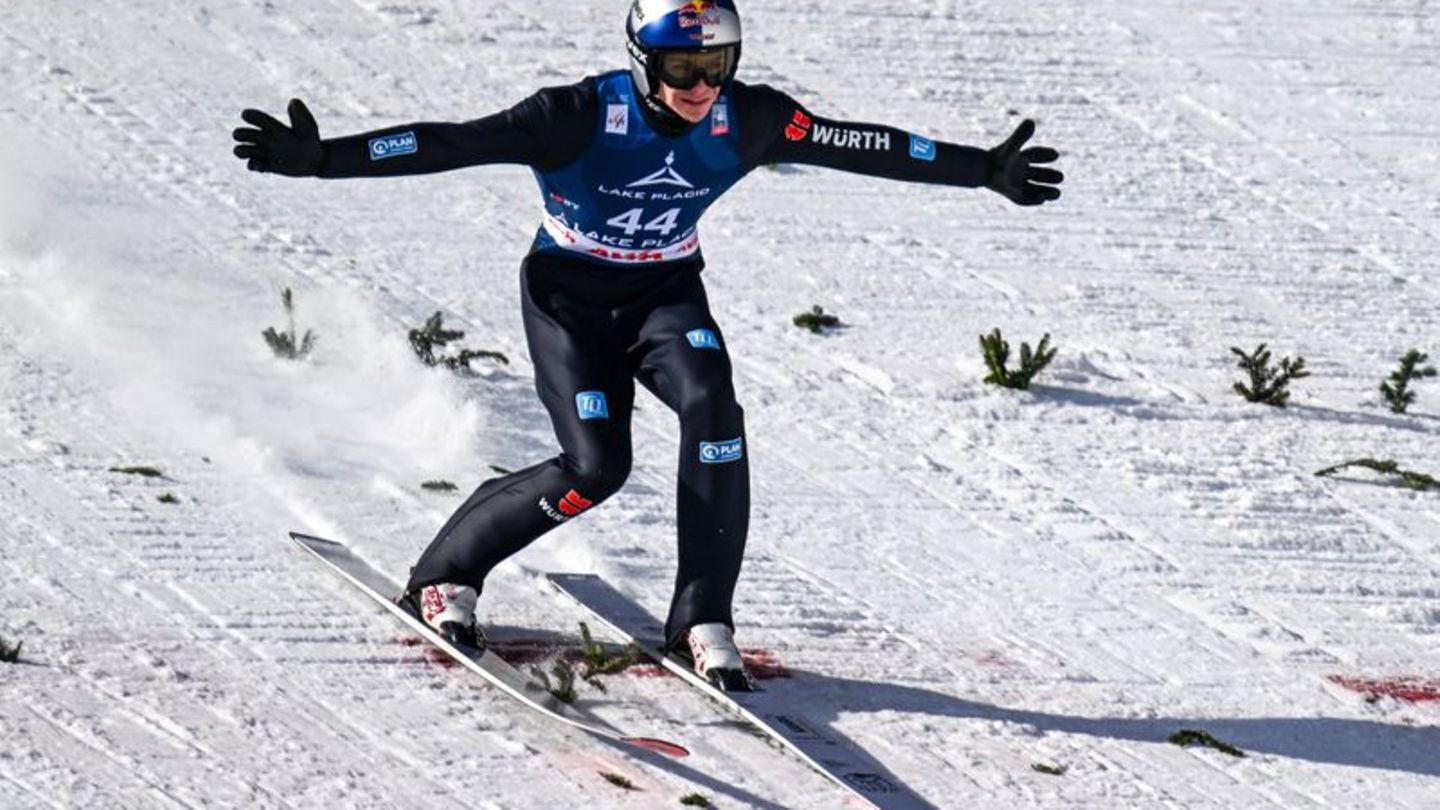
At the Winter Olympics Games event, the best competitors globally gather to contest to determine who’ll emerge as the winner of the gold medal. Since the games at this event always gather much publicity, Ski jumping betting interests escalate.
At the Ski jumping Winter Olympics event, punters can enjoy competitive Ski jumping odds on different wagering options, including underdogs. In most cases, participants don’t meet the expectations of spectators and punters, which may result from injuries, game pressure, stress, and weather conditions, among other factors.
FIS Ski Jumping World Cup
The FIS Ski Jumping World Cup tournament has been taking place since 1971. Each season, it occurs between November and March, including more than 25 contests at Europe’s most prestigious hills.
It also takes place in Japan and the United States. Judges award competitors a predetermined number of points in each event based on their rankings. The winner of the FIS Ski Jumping World Cup is the one with the highest points. Similar to the Winter Olympics Games, the FIS Ski Flying World Cup takes place as a sub-event of the main competition, and contestants only gather points scored at the prestigious Ski jumping hills from the calendar.
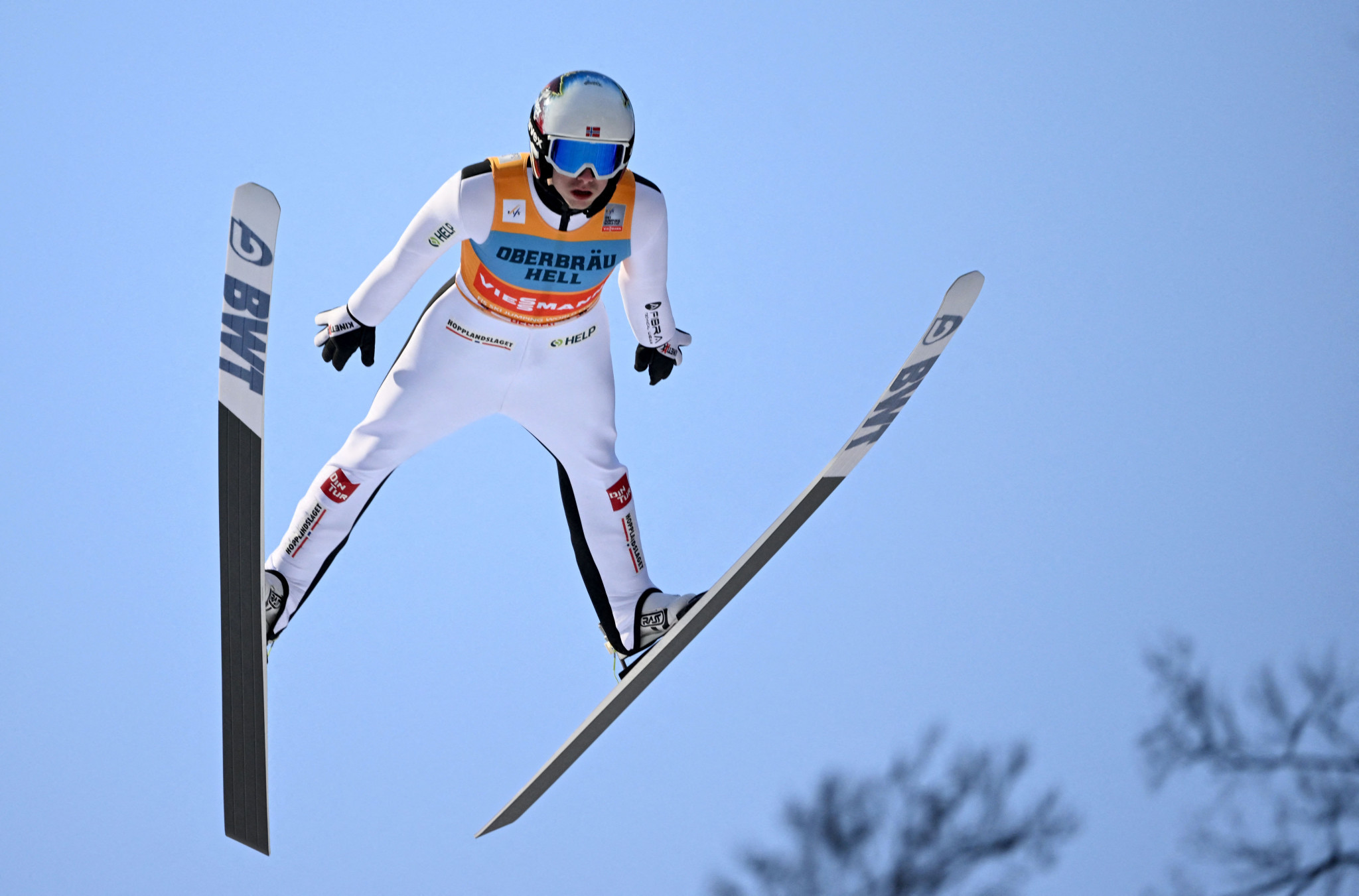
FIS Ski Flying World Championships
The FIS Ski Flying World Championships event first took place in Planica in 1972. It occurs around the first day of each New Year at four different venues. These venues include two in Australia, Bischofshofen and Innsbruck and two in Germany, Garmisch-Partenkirchen and Oberstdorf.
These Ski flying events take place in a slightly unique format compared to other World Cup contests. The first round involves knockouts between 25 pairs of competitors, and the judges determine the winner by adding up separate points from each performance.
FIS Ski Jumping Grand Prix
The FIS Ski Jumping Grand Prix is a tournament for both men and women. Initially contested by men in 1994, it was until 2012 that women started to participate. FIS Ski Jumping Grand Prix occurs on artificial ski jumps.
Each season features ten competitions held between July and October. Klingenthal, Hinterzarten, Wisla, Einsiedeln, Hakuba, and Courchevel are popular and regular venues. A team with four competitors, two women and two men, competes in this tournament.
Other Competitions
International Ski Federation organises other Ski jumping competitions, including FIS Cup Ski Jumping, FIS Race Ski Jumping, FIS Ski Jumping Alpen Cup and FIS Jumping Continental Cup. Usually, these competitions occur in Europe, Japan, Turkey, South Korea, Canada and the United States. Each one of them features a unique format, providing special markets for punters to include on their bet slips.
 Where to Watch Ski Jumping Live?
Where to Watch Ski Jumping Live?
Since this sport is rapidly increasing in popularity, both fans and bettors are looking for platforms where they can watch the events live. If you are a punter and a fan of the sport, then you’re lucky. Currently, numerous best betting sites with live streaming offer Ski jumping live streaming services.
To watch your favourite Ski jumping tournament or event, you only need to open an account with a bookmaker that offers live streaming and place a bet. Depending on your sportsbook of choice, you’ll need funds in your account or simply Ski jumping bet on the event you want to watch.
Aside from bookmakers, Eurosport provides Ski jumping live streaming services. Remember, you may be required to pay a small fee for these services if you decide not to sign up with a Ski jumping live betting site.

 What to Consider When Betting on Ski Jumping
What to Consider When Betting on Ski Jumping
The latest seasons have shown that various factors have made Ski jumping competitions more unpredictable. Weather, mainly the wind’s direction and power, massively determines the markets Ski jumping bookmakers offer and the event’s winner.
Special Weather Markets
A proper reading of weather conditions is already half of the betting success. During bad weather conditions, there are always surprises and reshuffling of the favourites. In such cases, placing a bet on the favourites is doubtful.
Ski jumping offers some unique markets for punters to bet on based on weather conditions. Special weather markets are rare, and as a result, just a few bookmakers have them. Weather conditions such as windy, icy, and snow determine the special markets your sportsbook of choice offers.
Sportsbooks offer these markets depending on the weather condition in the location where the Ski jumping event is taking place. And the best part is that most of them come with some special sportsbook offers and promotions that punters can take advantage of.
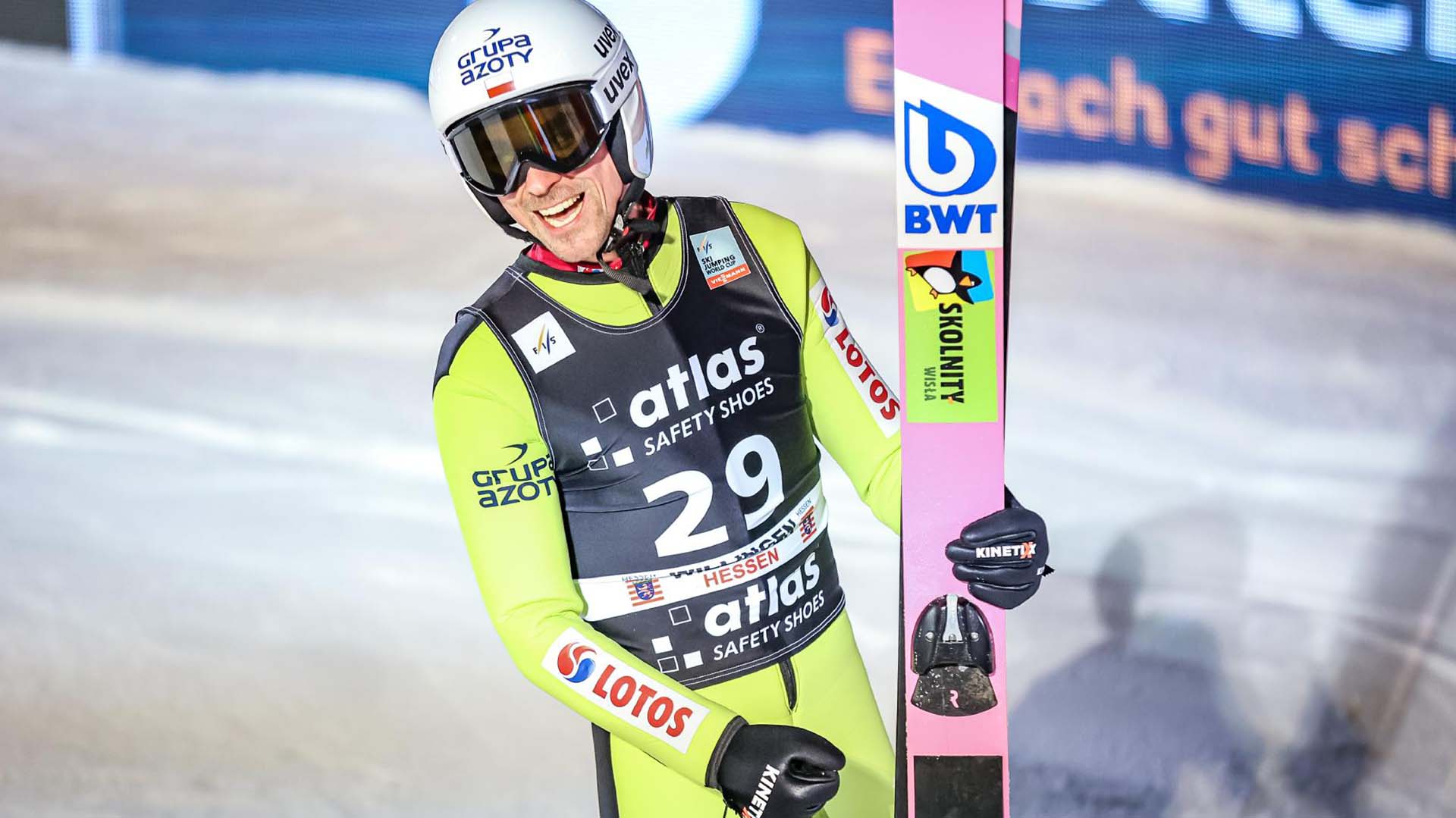
Skill Level of Each Competitor
The performance of the jumper plays a huge role when it comes to betting. If you are a serious punter, you need to look at the previous performances of players as well as their current form. While this information can help you make some rewarding bets, the Ski jumping sport is erratic.
A competitor who was performing excellently across the previous two or three events loses shape in the coming contests. That is why it’s challenging to make Ski jumping predictions. Before you place any bet, be sure to access accurate and up-to-date information to help you make rewarding decisions.
A good competitor might stop participating at any time because of smaller problems like family issues, minor injuries and illness. Any successful Ski jumping punter pays attention to training and qualification, among other things that could affect the overall performance of jumpers.
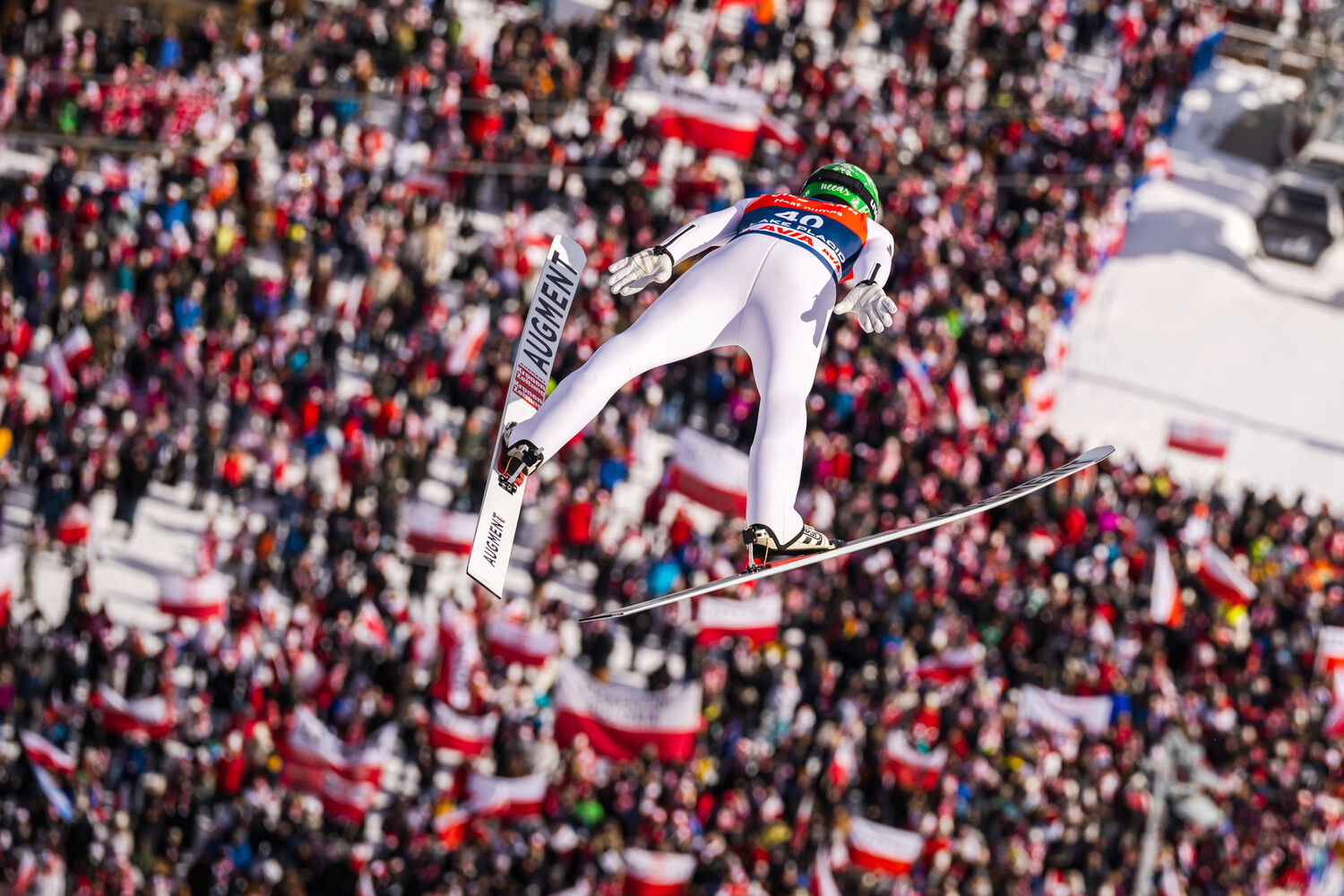
 How they Count Overall Score
How they Count Overall Score
Ski jumping is not only about the distance covered after taking off from the rake-off table. Other factors also determine the score, including style, the strength and direction of the wind, and in-run length. In single events, jumpers have a maximum of two competitive jumps that judges combine to provide an overall score.
The distance depends on the hill’s K-Point that jumpers are competing on. Provided competitors attain their K-Point target, they’ll receive 120 points on flying hills and 60 points for large or normal hills. The further the competitors go, the more points they collect. Each judge can award a maximum of 20 points for the jumping style, with a maximum of five judges presiding over a Ski jumping event.
 Ski Jumping Formats and Betting Markets
Ski Jumping Formats and Betting Markets
In individual events, Ski jumping includes large and normal hills. Before the medal event, competitors participate in two training sessions and a qualification round. Each national committee can provide a maximum of four competitors for every event, and qualification rounds reduce the number of athletes to 50.
The top ten competitors from the current season qualify for the finals automatically. The qualification round features one scored jump and a trial jump. Other formats include team and Nordic combined.
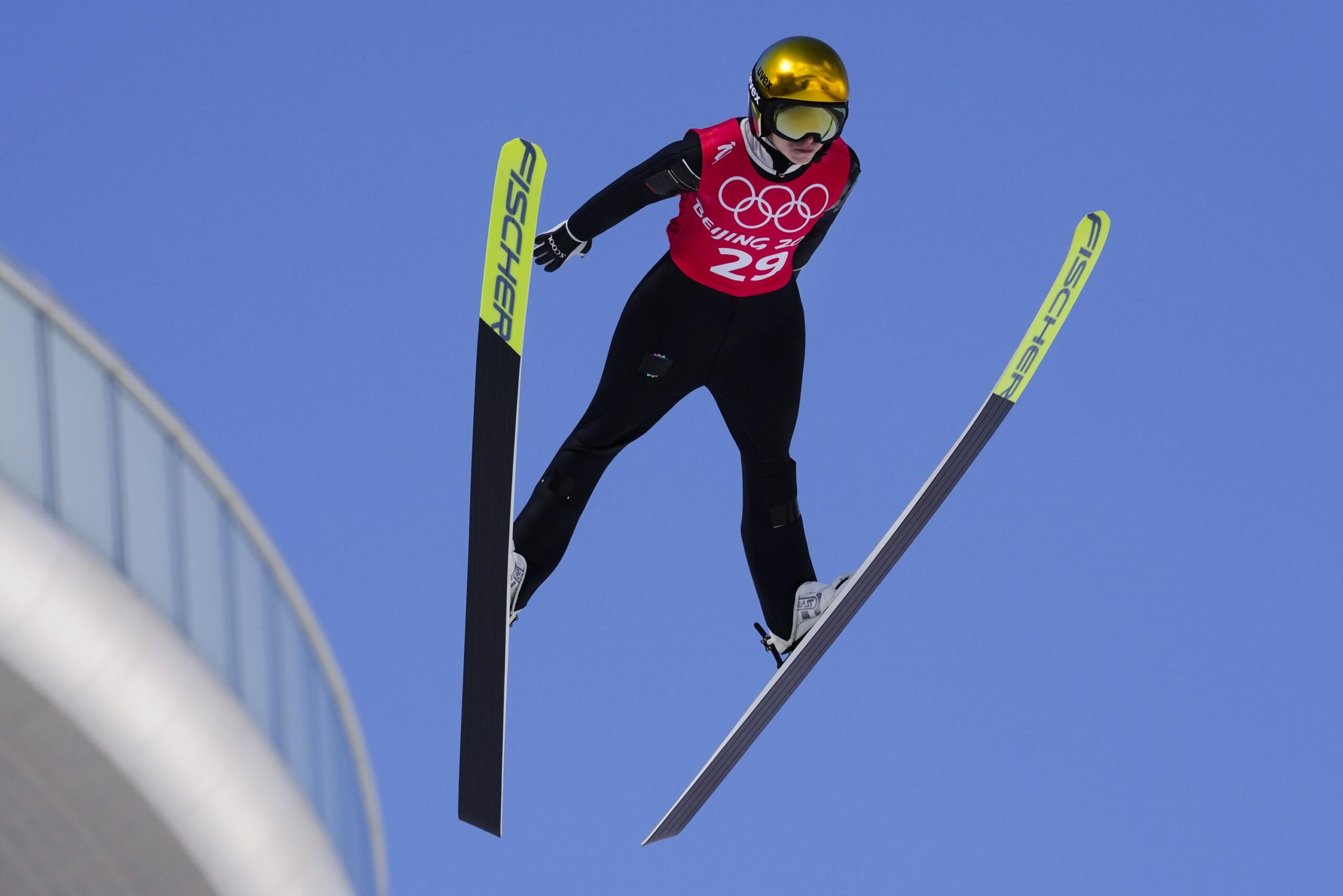
When it comes to markets, they aren’t as massive as those of other sports. The podium finish and outright winner are both popular options for all Ski jumping events and formats. Some popular bookies offer special markets like head-to-head match-ups and finish in the top two or three, allowing punters to enjoy competitive Ski jumping betting odds and higher potential for profits.
 Ski Jumping Betting Rules
Ski Jumping Betting Rules
Ski jumping athletes start from a special steep hill that features a hill to land on, the take-off point and the jumping rump. All athletes start at the same point, and while skiing, they need to gather enough momentum to enable them to be airborne as they jump.
An aerodynamic posture is important as the athletes get airborne since it helps them travel the longest distance. The K-point is the main target that athletes try to reach. As a punter, you need to know these rules before you can start betting. Understanding them is important since you’ll know the types of Ski jumping bets to place and what the sport entails.
